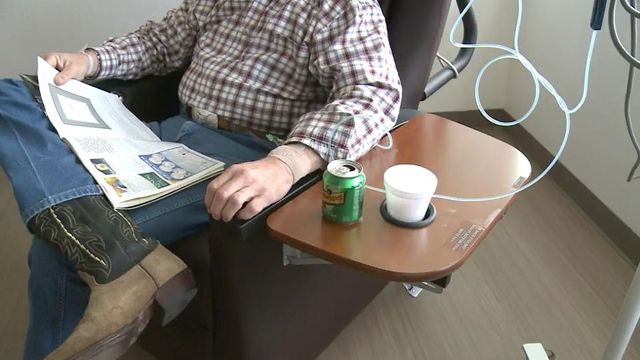Duke researchers find way to spare healthy tissue in cancer treatment
Fighting cancer typically involves toxic drugs and severe side effects - but Duke researchers have found ways to hit the cancer and spare healthy tissue.
Posted — UpdatedOne example is the drug Adcetris, which was FDA approved more than a year ago for two forms of lymphoma, a blood cancer.
The drug includes a special antibody that targets a protein in cancer cells - and only the cancer cells.
"I think the term has been used – 'Smart Bomb' ability or a heat seeking missile approach – to find an area that they're targeted against, seeking it out wherever blood flows in the body," said Dr. David Rizzieri from Duke Medicine.
Dr. Rizzieri was in on the drug's development and says it's a concept now being studied in other areas like breast cancer.
"Women on this new treatment don't lose their hair. They don't look sick, and they're really coming once every 3 weeks to get a treatment that allows them to live their lives," said Dr. Kimberly Blackwell of Duke Cancer Institute.
Another Duke study is targeting tumors with the use of MRI scanners and something called "theranostics".
"It's basically a combination of therapy and diagnostics together," said Duke neuroradiologist Dr. Chris Lascola.
Using mice models, Lascola and medical chemist Dr. Tim Haystead found a chemotherapy drug tethered to a contrast agent that helps them better identify cancerous lesions using MRI.
The drug is also sensitive to radio waves.
"Applying those radio waves that in some cases can actually be applied by the MRI scanner itself can cause a local heating effect within the cancer cells," Lascola said.
It kills the cancer but spares normal tissue.
Because these cancer fighting strategies specifically fight the cancer and reduce side effects, doctors say stronger doses can be tolerated – improving the odds of beating the cancer.
• Credits
Copyright 2024 by Capitol Broadcasting Company. All rights reserved. This material may not be published, broadcast, rewritten or redistributed.





